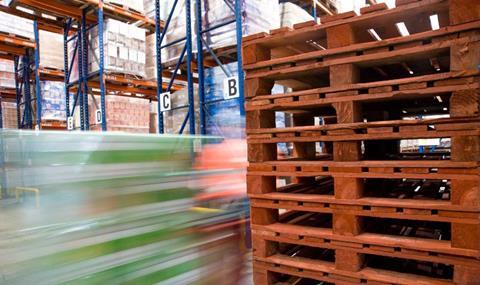
Netherlands-based pooling giant IPP and logistics expert Global Tracks have joined forces to harvest data from the recovery, recycling and repatriation of wooden pallets.
The trial partnership aims to digitalise existing business processes to gain greater insight into how Global Tracks’ Internet of Things (IoT) expertise can be deployed in the IPP pool, and to leverage the extensive data provided every time a pallet is used.
Data flows are digitalised, giving insight into asset damage, usage and loss, making it easier for customers to work with IPP, which supplies more than 50 million sustainable wooden pallets to customers across western Europe every year.
IPP serves the FMCG, fresh produce and chilled industries while Global Tracks is a specialist in the development and provision of specialist IoT solutions across the logistics, automotive, solar and mobility sectors.
Commented Eric Schrover, chief commercial officer at IPP: “In a re-use model it’s vitally important that we maximise recovery of pallets in a timely way - it’s what we do as poolers.
Read more
“At any given time, millions of pallets are being processed across the breadth of many supply chains and any inefficiency in a pooling model can mean enormous loss of value.
“IPP is focused on sustainable sourcing, efficiency improvement, waste reduction and collaboration across the supply chain in order to mitigate costs and environmental impact. By monitoring physical location and flows, we gain insight into process inefficiencies.
“We expect that Global Tracks will be instrumental in helping us to access such insight as part of our wider digitalisation ambition.”
Ralf Heeremans, chief executive at Global Tracks, said: “The solutions that we are developing show that IoT is especially useful in highly-traditional business processes and can even be applied to low value assets.
“The potential of IoT is not limited to high-tech companies. Working with IPP, we believe the humble pallet, which has been in use since the 1940s, is well placed to face the challenge of entering the 21st century through the optimisation of efficiencies to help shape the future of material handling, storage and distribution.”













![Maritime_Terminal[73510]](https://d2cohhpa0jt4tw.cloudfront.net/Pictures/100x67/1/3/7/24137_maritime_terminal73510_883926.jpg)